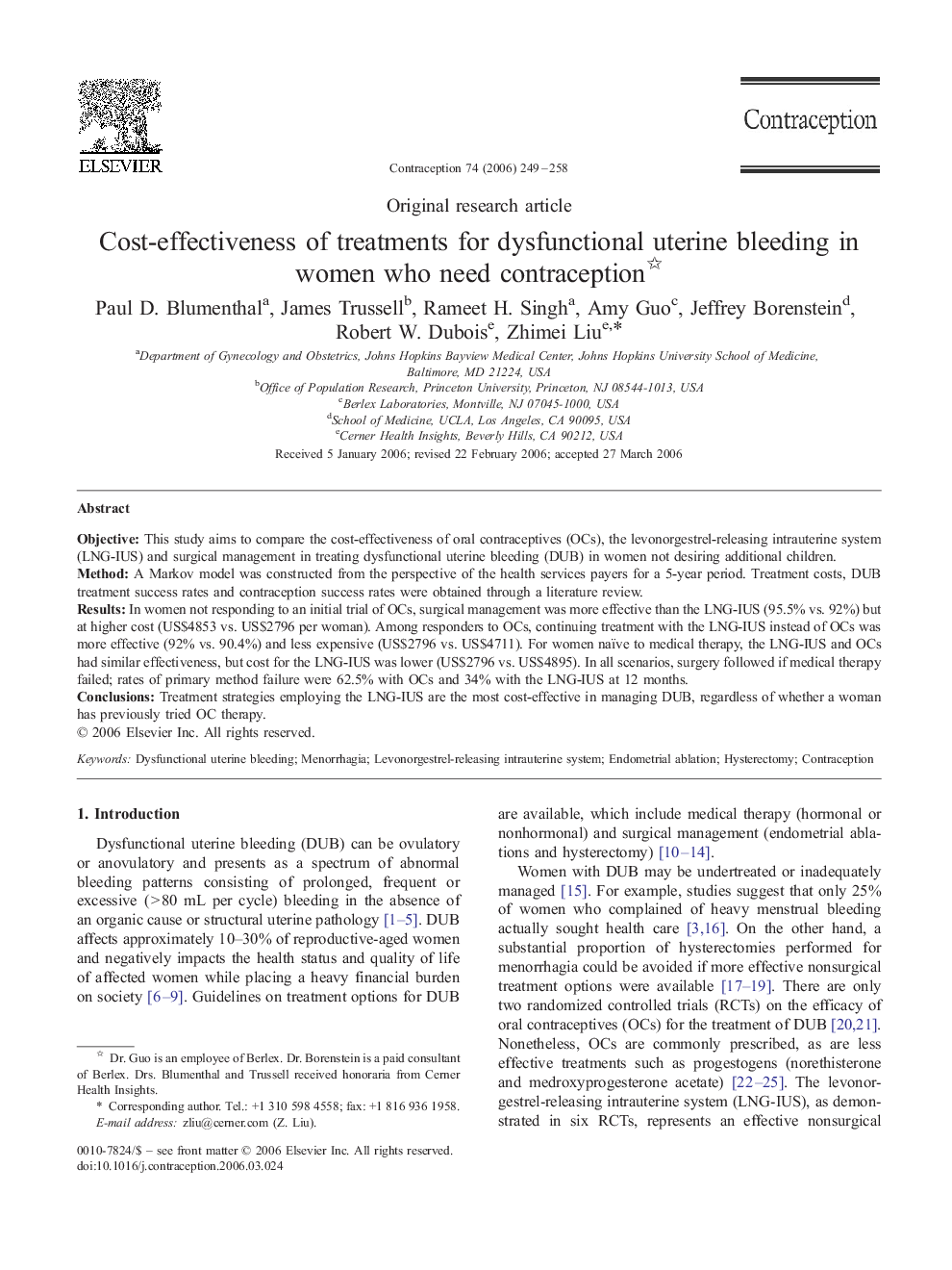| Article ID | Journal | Published Year | Pages | File Type |
|---|---|---|---|---|
| 3916197 | Contraception | 2006 | 10 Pages |
ObjectiveThis study aims to compare the cost-effectiveness of oral contraceptives (OCs), the levonorgestrel-releasing intrauterine system (LNG-IUS) and surgical management in treating dysfunctional uterine bleeding (DUB) in women not desiring additional children.MethodA Markov model was constructed from the perspective of the health services payers for a 5-year period. Treatment costs, DUB treatment success rates and contraception success rates were obtained through a literature review.ResultsIn women not responding to an initial trial of OCs, surgical management was more effective than the LNG-IUS (95.5% vs. 92%) but at higher cost (US$4853 vs. US$2796 per woman). Among responders to OCs, continuing treatment with the LNG-IUS instead of OCs was more effective (92% vs. 90.4%) and less expensive (US$2796 vs. US$4711). For women naïve to medical therapy, the LNG-IUS and OCs had similar effectiveness, but cost for the LNG-IUS was lower (US$2796 vs. US$4895). In all scenarios, surgery followed if medical therapy failed; rates of primary method failure were 62.5% with OCs and 34% with the LNG-IUS at 12 months.ConclusionsTreatment strategies employing the LNG-IUS are the most cost-effective in managing DUB, regardless of whether a woman has previously tried OC therapy.
